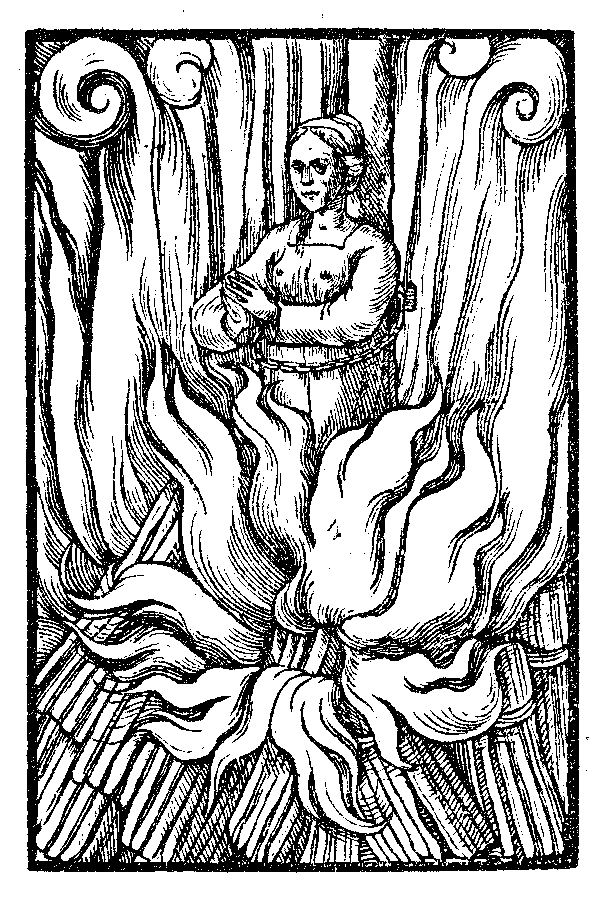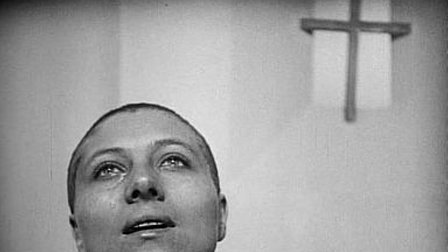Eric-Emmanuel Schmitt
(Europa Editions)
 Schmitt recites the history of three women from three ages: Anne de Bruges from the sixteenth century, Hanna von Waldberg from Vienna (1904), and Anny Lee of contemporary Hollywood.
Schmitt recites the history of three women from three ages: Anne de Bruges from the sixteenth century, Hanna von Waldberg from Vienna (1904), and Anny Lee of contemporary Hollywood.Anne de Bruges was a saint, a mystic who could communicate with the animals and enrage the fathers of the church. When a monk asks her to read the Bible, she does so, and says to him that she "had never seen so many massacres, so much sin and injustice, all through the fault of men, of course, but the fault of God, too,"
who took his revenge like a primitive brute, demanding insane sacrifices --- the son of Abraham, torturing Job the Righteous for no reason...
"In short, behaving like a tyrant, a capricious monarch who showed no more sangfroid or discernment than a highwayman."
With thoughts like this, freely expressed, and rumors that she was sleeping with wolves (!), soon enough they fry poor Anne at the stake.
Hanna von Waldberg lives in Vienna. Everyone believes she is happily married to Franz, and when she gets with child, they say that she has finally fulfilled her marital obligations. But after nine months, it turns out to be a "false pregnancy," all slush and no babe.
Hanna wants to know why. After some hesitation, she goes to consult one of Freud's disciples, a Dr. Calgari. (Note the name, a slightly misspelled variation of the mysterious filmic figure of a famous 1920's insane asylum.) Unlike a real Freudian, Calgari spends altogether too much time --- psychoanalysts usually shut the hell up and just scribble in their notebooks --- telling Hanna what's wrong with her,
You never feel legitimate. In society, or with your husband, you'r haunted by imposture, you think you must remain silent and listen to others, you are of the opinion that Franz chose the wrong wife and will eventually realize it. These fears come from your initial position, that of an adopted child who receives an arbitrary affection, unjustified by blood.
&ct &ct &ct blah-blah.
All this blather evidently does its job on the good hausfrau. She's found her god, and his name is Freud. He and Calgari give her a certain emotional laissez faire. She promptly gives away all her goods and takes to the road much like the mendicant Anne de Bruges. In fact, Hanna ends up in Brussels, writing a book about Anne, "the Flemish mystic."
To hammer in the parallelisms, Schmitt has her write to her friend Gretchen --- Hanna's story has been told in epistolary form all along --- that Anne, "did not want her life to be reduced to serving a man or providing him with children; neither do I."
Deep within, she [Anne] felt there must be much more than just what she could see; that it is also what I think. This sense of the infinite that she discovered in herself but which was beyond her; she called it God. I would call it, rather, the unconscious.
§ § § Finally, there is the very 21st Century Anny of Hollywood . She does all those things we expect famous young actresses to do: drugs, sex, money, lying, sleeping till noon, never cleaning up the kitchen, &ct. Anny's story is a most hackneyed one, and when she goes into drug breakdown we find ourselves moving swiftly over the pages to get back to Anne Godeliève, who is, by far, the most interesting character here.
The reason: Schmitt runs into that time-honored pitfall that bedevils all dramatists and novelists; that is, how do you take a boring, one-sided character and turn him or her into someone we can relate to? Or even want to read about.
For neatness sake, Anny of Hollywood reads Hanna of Vienna's book about Anne of Bruges and becomes transfixed, wants to drop sex and booze and drugs, wants to make a movie about the good saint. After a little not-so-subtle blackmail on the director, she manages to pull it off, and --- in the final scene, as she is being cooked --- she has a revelation.
What Anne saw as "God," what Hanna saw as "the unconscious," she --- Anny --- "would have diagnosed this ecstasy as a chemical reaction, the one that substances --- drugs or medication --- could produce in an organism."
The divine, the psychic, the chemical --- these were the keys that different centuries proposed to unlock the doors of the mystery. Anne, Hanna, Anny.
In the filming of the life of Anne of Bruges, Anny decides that she must show Anne going to her death with joy: that the saint must be "unaware of the world's violence."
Her lovely, open face turned to the light, savoring every moment. When she was tied to the stake, she was radiant. Unexpected thoughts wafted from her peaceful self: they said that she loved life, that she loved pain as much as pleasure, that she was not afraid of fear, and that she also loved death.
